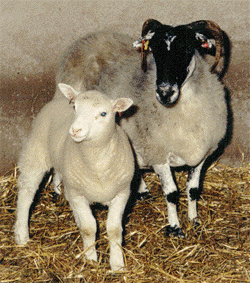












Genetically Modified Organisms: Comments and links

 The debate currently under way on Genetically Modified Organisms is hot.
We have the long-established
chemical company Monsanto in the heart of
it and the long succession of
different
versions
of their substances, particularly
'Agent Orange' and
'Roundup.'
While they will argue that
'Agent Orange' was used successfully and with minimal human or ecological damage in military
tactics in Vietnam, objectors list figures of thousands of babies still being born with
serious deformities as a result. The problem with the pesticide
'Roundup' is that, like with most pesticides,
resistance can be built against it. Objections are also raised at
Monsanto's apparent attempt to monopolise
worldwide the agricultural industry - they now market Roundup
resistant seeds
with their product, insisting that the farmer take both and purchases
from them exclusively.See
The Ecologist
The debate currently under way on Genetically Modified Organisms is hot.
We have the long-established
chemical company Monsanto in the heart of
it and the long succession of
different
versions
of their substances, particularly
'Agent Orange' and
'Roundup.'
While they will argue that
'Agent Orange' was used successfully and with minimal human or ecological damage in military
tactics in Vietnam, objectors list figures of thousands of babies still being born with
serious deformities as a result. The problem with the pesticide
'Roundup' is that, like with most pesticides,
resistance can be built against it. Objections are also raised at
Monsanto's apparent attempt to monopolise
worldwide the agricultural industry - they now market Roundup
resistant seeds
with their product, insisting that the farmer take both and purchases
from them exclusively.See
The Ecologist
The difficulty with the entire industry is that it is impossible to tell what the long-term
effects of letting GMOs into the environment will be. Concerned speakers claim that what is
worrying is that the effects are irreversible: once genetically modified plants are put
into the ecological system, their seeds will cross-breed with other
seeds: the results are
impossible to determine. And equally worrying is the as yet
unknown effects
on the human system of consuming foods with genetically modified ingredients. What
most concerned groups are calling for is a moratorium on the release of these organisms
until sufficient time has been allowed for research.
Genetic Concern! in Ireland is calling
for the same thing and even more: they are calling for the elimination of these organisms
from agriculture here altogether - thereby creating Ireland as a
GMO-free Zone,
surely something
that would be a brilliant marketing step considering the level of public opinion (abroad
particularly) against GMOs.
A survey was done recently by Landsdowne Market Research among 1,400 people of all age groups
across Ireland. Of those who responded, 78% of those surveyed said that they knew little or nothing
about GMOs. 62% were either 'fairly concerned or very concerned' about genetically engineered
foods. 'However,' according to Genetic Concern!,' when the (relatively small) number
of those who considered that they knew a fair amount about genetic engineering were asked about
their concerns, a staggering 88% of those who responded were either very concerned or fairly
concerned.' (
Sustainable Ireland 1999, p. 6)
Certainly the debate is engaging - and there's lots of great sites out
there with material in plenty!

Links to Sites of Related
Interest:

 Home
Home
Limerick
Greens
Environment Page